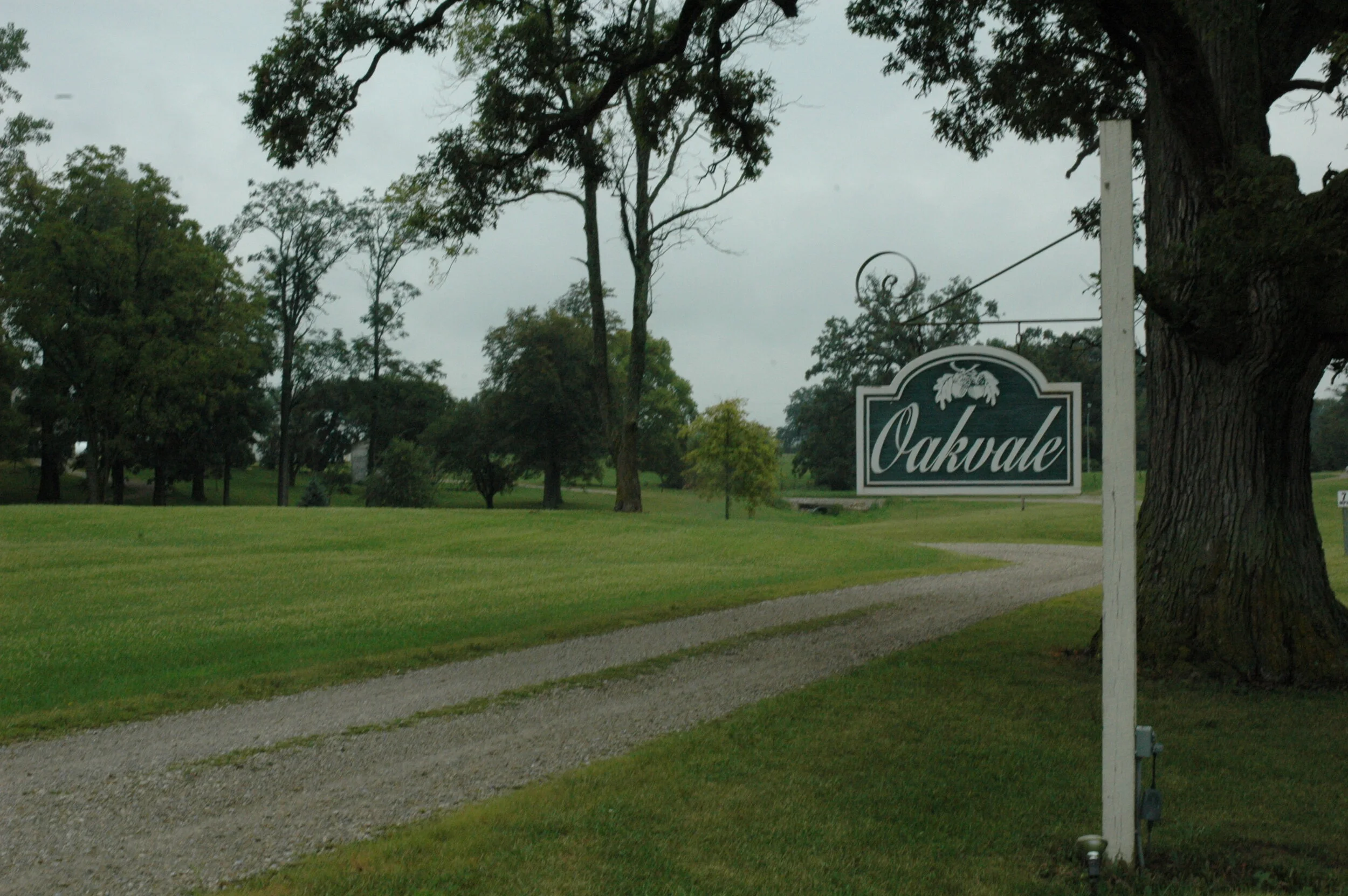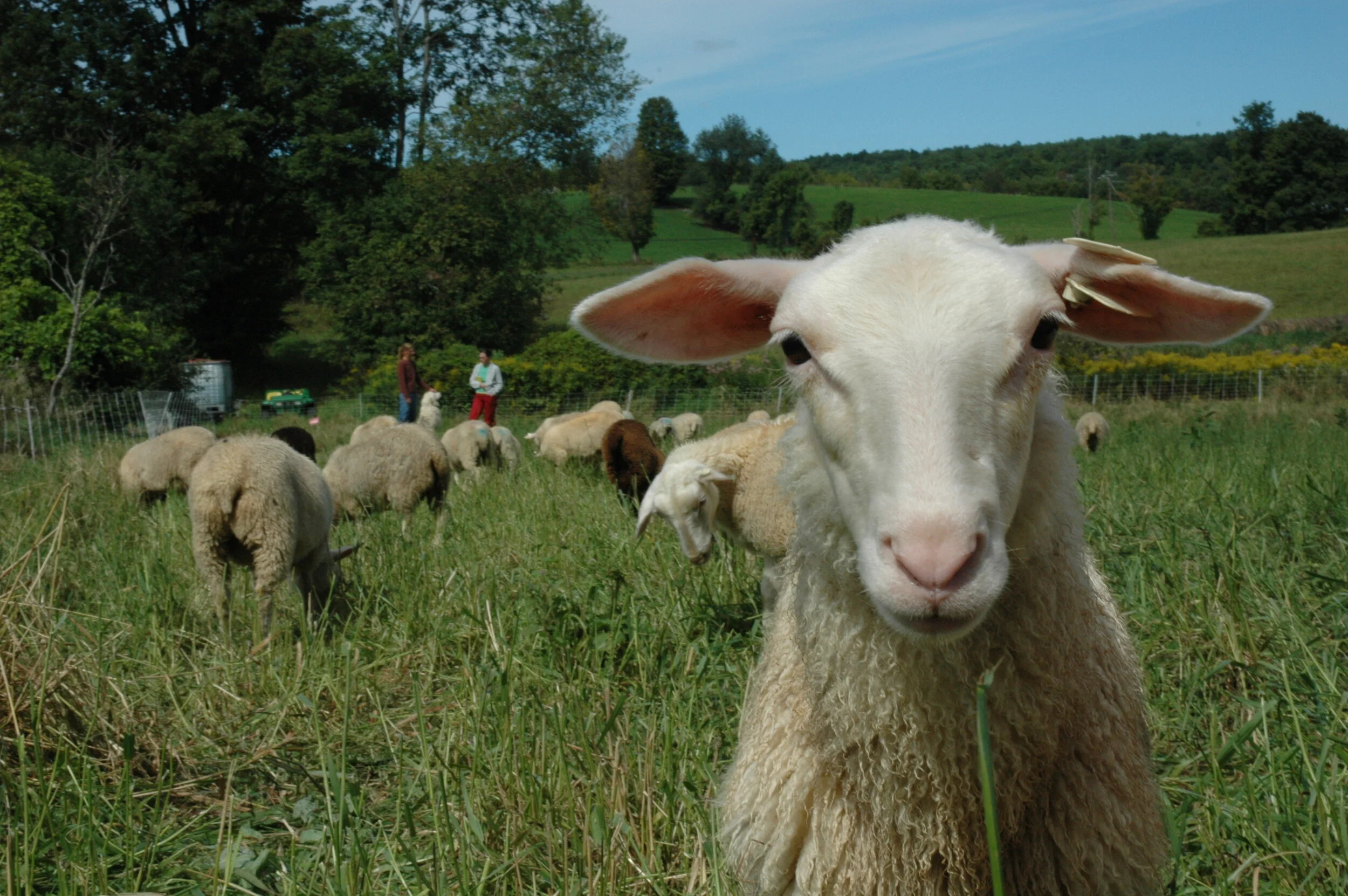Oakvale Cheese: Ohio
September 2006
Name: Oakvale Farmstead Cheese [Update: It appears that Oakvale is no longer in business.]
Owners: Dale & Jean King, Elizabeth and Randy Finke
Location: London, OH
Animals: Milking a herd of 70 cows- primarily Holstein with some Brown Swiss
Cheeses/Products: Farmstead Gouda- original and flavored
Oakvale Farm is a beautiful example of a dairy farm and farmstead cheese operation involving multiple generations of one family. Dale King grew up on a dairy farm in Hilliard, now a bustling suburb of Columbus, OH. Until about 10 years ago, he and his brother had a successful 100 cow dairy and grain farm in Hilliard on a piece of land that had been in their family since 1853. When they decided to give up that farm they were milking their 100 cows in a parlor that was 100 yards away from a subdivision. Dale says that he and his brother could see the writing on the wall- urban creep was not abating any time soon. So they sold and Dale and Jean started over in a new community just 20 miles west of Columbus.
When they settled in London, OH to create a new dairy and grain farm their daughter Elizabeth and her husband Randy joined them. They farm approximately 600 acres- some owned by them, some leased from neighbors, and they milk 70 cows. The cows are fed a combination of feed grown on their own land including corn silage, timothy and alfalfa, and hay mix and grain. During good weather the cows are allowed out on pasture and when the weather is wet and the ground is muddy they are generally not allowed out in the interest of maintaining good pasture conditions and keeping the animals out of thick mud.
Randy, who comes from a long line of dairy farmers in Southern Indiana, is the herdsman. In our conversations with him about their herd management decisions it was clear that he is committed both to milk quality and longevity in his animals. He does a lot of research and work on the genetics of his herd and because of his capabilities in this area he has been able to bring in a bit of extra money to the farm by producing and selling some desirable stock. While he is a firm believer that while genetics and breed are important, management and feed are the way that one influences milk production and quality.
Initially, the families were farming grain and selling fluid milk as they had done for years in their former location. Milk prices have not been doing well for quite a few years now and they were finding that the farm was not effectively supporting two families. When Jean read an article in 2001 about a family of dairy farmers in Georgia (Sweet Grass Dairy) who began making artisan cheese, she saw a possibility for her own family. Elizabeth began doing research on cheesemaking. She took a short-course at the University of Wisconsin and visited a number of artisan cheesemakers to get an understanding of what it would take for Oakvale Farm to produce cheese.
They built a cheesemaking facility that will be able to handle all the milk produced by their herd. Three years into it they are making cheese one day a week, usually the vat has about 2500-3000 lbs of milk in it. The day that we observed they were working with the production from just one milking- about 1600 lbs of milk which will yield approximately 160 lbs of cheese. Originally the plan was for Dale and Elizabeth to focus on cheesemaking while Randy would tend the cows and assist Jean with cheese sales. After a short time the families realized that the cows required more attention so Elizabeth has shifted her focus to working with Randy. Dale is now the head cheesemaker so we spent a good part of our day with him in the cheese room learning about the Oakvale Gouda process.
I’ve never seen a vat like theirs. It is shaped like the number 8 and it is amazingly quiet for a piece of equipment with some motorized pieces. Dale had come over to the cheese plant earlier in the morning (while we were drinking coffee with Jean) to culture and rennet the milk. By the time we arrived Dale and his assistant were attaching the cheese harps to the vat to begin cutting the curd. While the cheese harps sliced through the curds we looked out the cheese room windows to watch the latest set of Holstein and Brown Swiss calves stretching and feeding near their pens.
After cutting and some stirring, the curd is washed, which means that about 1/3 of the whey is drained off and hot water is added back into the vat to raise the temperature and to reduce the acidity. While the water is being added the curds are stirred. At a certain point the stirring stops and the curds need to sit until they hit the target pH and have the proper texture. During this "sitting" time we checked out the brine tank and aging room. Once the curds were ready, Dale and his assistant corralled them at one end of the vat so they could scoop curds easily into the molds. Over the next 24 hours the wheels will be pressed with increasing pressure and flipped on a regular schedule. Oakvale has a large pneumatic press that allows them to control the pressing stage with precision.
Dale is experimenting with a coating on some wheels to see if it prevents spots of blue and green mold from growing on the Gouda’s straw-colored surface. Although the mold doesn’t influence flavor in the cheese, some retailers would rather not see anything on the surface of the wheels. Oakvale sells their cheese to a number of local stores and also in key locations around the country. Even though they are looking at some larger scale clients they continue to go to the farmer’s market in Columbus on Saturdays. It feels like growth has not happened as quickly as the folks at Oakvale expected when they started making cheese but even they admit that this has given them time to tinker with their cheese recipe and aging techniques which will help them set their best foot forward when the doors of the cheese world blow all the way open for them. For the moment, it is nice to know that while their cheese works its way to retailers around the country, it is also available directly from the farm. Like I said early on- cheese by mail is a miracle of the modern world.






